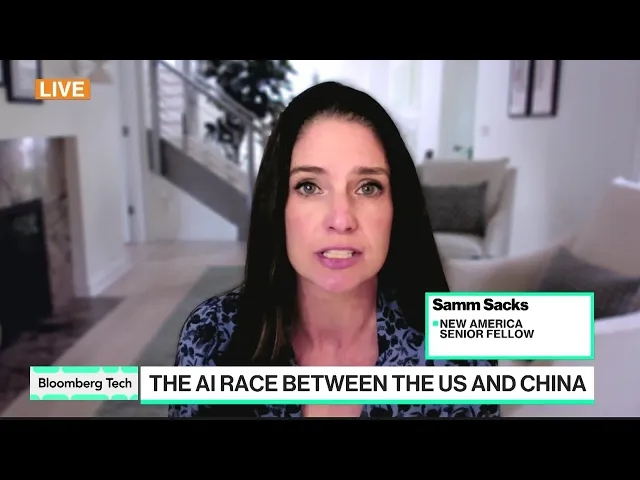The US, China Race for AI Supremacy

China vs US: the great AI race heats up
The global competition for artificial intelligence dominance has escalated into perhaps the most consequential technological rivalry of our time. As the United States and China pour massive resources into advancing their AI capabilities, the stakes extend far beyond economic advantages to encompass national security, geopolitical influence, and the very nature of how societies will function in the coming decades. This high-stakes technological contest is reshaping international relations and corporate strategies alike, with implications that will touch virtually every industry and government.
Key Points
-
The AI competition between the US and China has fundamental differences in approach – China emphasizes centralized planning and government coordination, while the US relies more on private sector innovation and market forces.
-
China maintains distinct advantages in data collection scale, government-directed investment, and implementation speed, while the US leads in fundamental research, semiconductor technology, and attracting global talent.
-
Recent US export controls on advanced semiconductor technology represent a significant escalation in the technological rivalry, potentially hampering China's AI development capabilities.
-
Both nations recognize AI as not merely an economic opportunity but a critical national security imperative that will determine military capabilities, intelligence advantages, and societal resilience.
-
The competition has created a bifurcated global technology ecosystem with countries increasingly pressured to align with either the US or Chinese technological sphere of influence.
The New Technological Cold War
The most profound insight from examining this rivalry is that we're witnessing the emergence of a technological cold war that will likely define international relations for decades. Unlike previous technological races that could be measured by discrete achievements (like reaching the moon), this competition features continuous innovation across multiple domains with no clear finish line.
This matters enormously because AI systems don't exist in isolation – they represent integrated technological ecosystems that increasingly determine economic competitiveness, military capabilities, and social governance models. The nation that establishes leadership in artificial intelligence gains leverage not just in direct applications, but in setting global standards, regulatory frameworks, and ethical norms that align with their values and interests.
We're already seeing this dynamic play out in areas like facial recognition technology and algorithmic governance. China's extensive deployment of AI surveillance systems is being exported to dozens of countries, effectively spreading a particular vision of how technology should intersect with governance and individual rights. Meanwhile, the US and allies attempt to promote alternative approaches emphasizing privacy protections and democratic
Recent Videos
How To Earn MONEY With Images (No Bullsh*t)
Smart earnings from your image collection In today's digital economy, passive income streams have become increasingly accessible to creators with various skill sets. A recent YouTube video cuts through the hype to explore legitimate ways photographers, designers, and even casual smartphone users can monetize their image collections. The strategies outlined don't rely on unrealistic promises or complicated schemes—instead, they focus on established marketplaces with proven revenue potential for image creators. Key Points Stock photography platforms like Shutterstock, Adobe Stock, and Getty Images remain viable income sources when you understand their specific requirements and optimize your submissions accordingly. Specialized marketplaces focusing...
Oct 3, 2025New SHAPE SHIFTING AI Robot Is Freaking People Out
Liquid robots will change everything In the quiet labs of Carnegie Mellon University, scientists have created something that feels plucked from science fiction—a magnetic slime robot that can transform between liquid and solid states, slipping through tight spaces before reassembling on the other side. This technology, showcased in a recent YouTube video, represents a significant leap beyond traditional robotics into a realm where machines mimic not just animal movements, but their fundamental physical properties. While the internet might be buzzing with dystopian concerns about "shape-shifting terminators," the reality offers far more promising applications that could revolutionize medicine, rescue operations, and...
Oct 3, 2025How To Do Homeless AI Tiktok Trend (Tiktok Homeless AI Tutorial)
AI homeless trend raises ethical concerns In an era where social media trends evolve faster than we can comprehend them, TikTok's "homeless AI" trend has sparked both creative engagement and serious ethical questions. The trend, which involves using AI to transform ordinary photos into images depicting homelessness, has rapidly gained traction across the platform, with creators eagerly jumping on board to showcase their digital transformations. While the technical process is relatively straightforward, the implications of digitally "becoming homeless" for entertainment deserve careful consideration. The video tutorial provides a step-by-step guide on creating these AI-generated images, explaining how users can transform...
